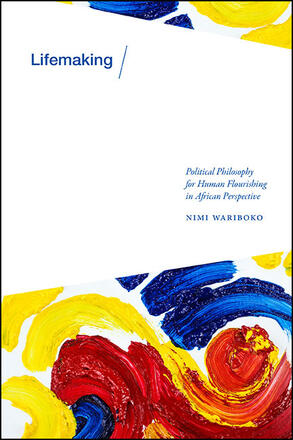
Lifemaking
Political Philosophy for Human Flourishing in African Perspective
Draws on indigenous African political thought in order to construct a political philosophy that will resist and restrain necropolitics and promote human flourishing in Africa.
Description
Lifemaking offers a fresh frame for analyzing contemporary African politics and imagining its future. Rooted in the indigenous political philosophy of lifemaking of the Kalabari-Ijo people of the Niger Delta, this work is a counterpoint to the necropolitics that dominates African political practice. For practitioners and analysts for whom Africans and their polities are caught in the TINA (There Is No Alternative) syndrome, this book offers inspiration for an alternative to the current necropolitics. Because the book's thesis is an unreserved celebration of lifemaking, it identifies collective human flourishing as essential to politics.
Nimi Wariboko is Walter G. Muelder Professor of Social Ethics at Boston University. His previous books include The Split Time: Economic Philosophy for Human Flourishing in African Perspective, also published by SUNY Press, and Transcripts of the Sacred in Nigeria: Beautiful, Monstrous, Ridiculous.
Reviews
"This book brings African philosophical thought into conversation with Continental philosophy and opens the way for a novel cross-fertilization of ideas. Most books on the subject of politics and even political theology in Africa have mainly described and analyzed the situation either ethnographically or through some other social science or theological discipline. This is the first book that draws on African philosophical and religious thought and personality theory to critique and offer a corrective to African political theology in a way that is germane to African peoples." — Esther Acolatse, University of Toronto
"This is an illuminating work on the history of African political thought. Drawing on notable scholarship in the humanities and social sciences, especially philosophy, history, sociology, politics, and cultural studies, as well as local histories of pre-colonial Kalabari society in contemporary southern Nigeria, Wariboko provides a compelling case for using narratives from the African past to inform the discourse on politics and governance in contemporary African states. The longstanding—and often neglected—ideas, practices, and narratives in precolonial African societies, Wariboko argues, can guide contemporary African states, leaders, and citizens towards an accountable and participatory political order that can sustain human flourishing, erode endemic abuses of power by the political class, and undermine recurring state crises." — Olufemi Vaughan, Amherst College